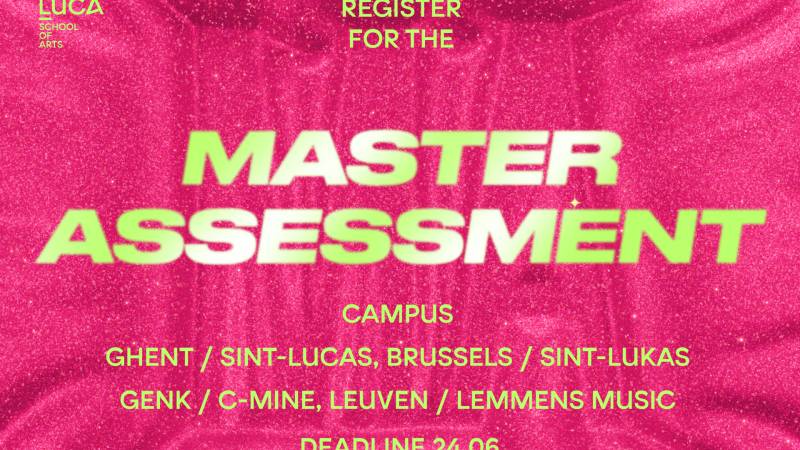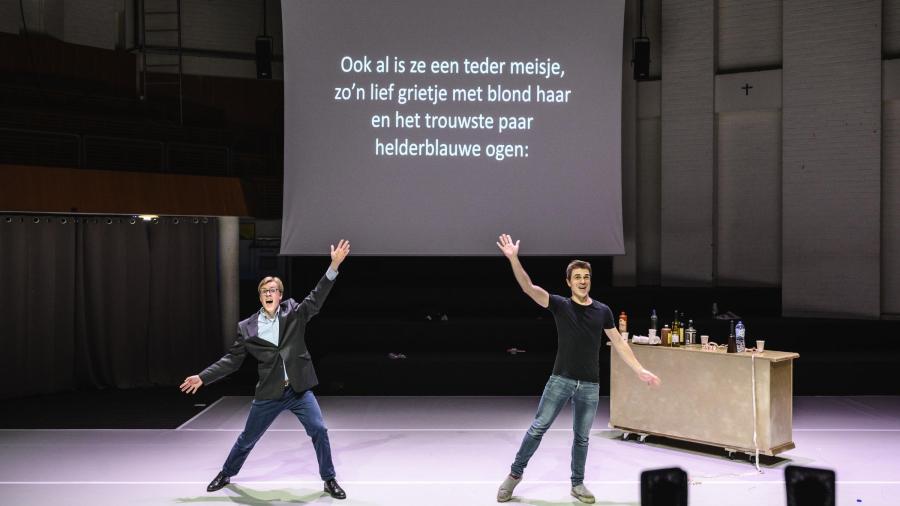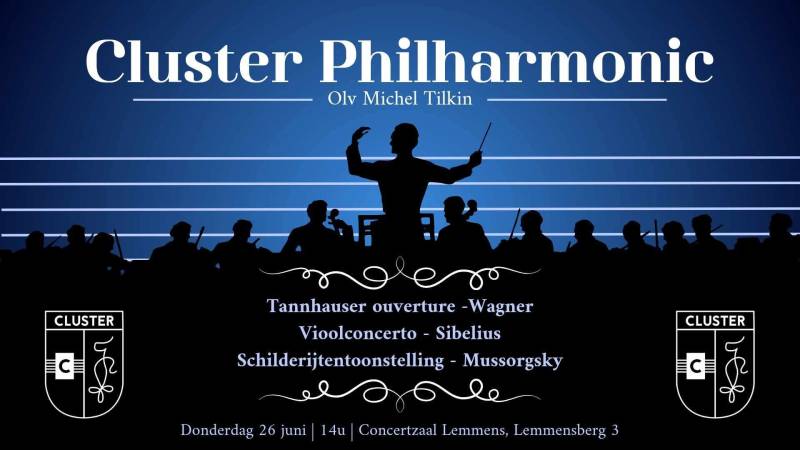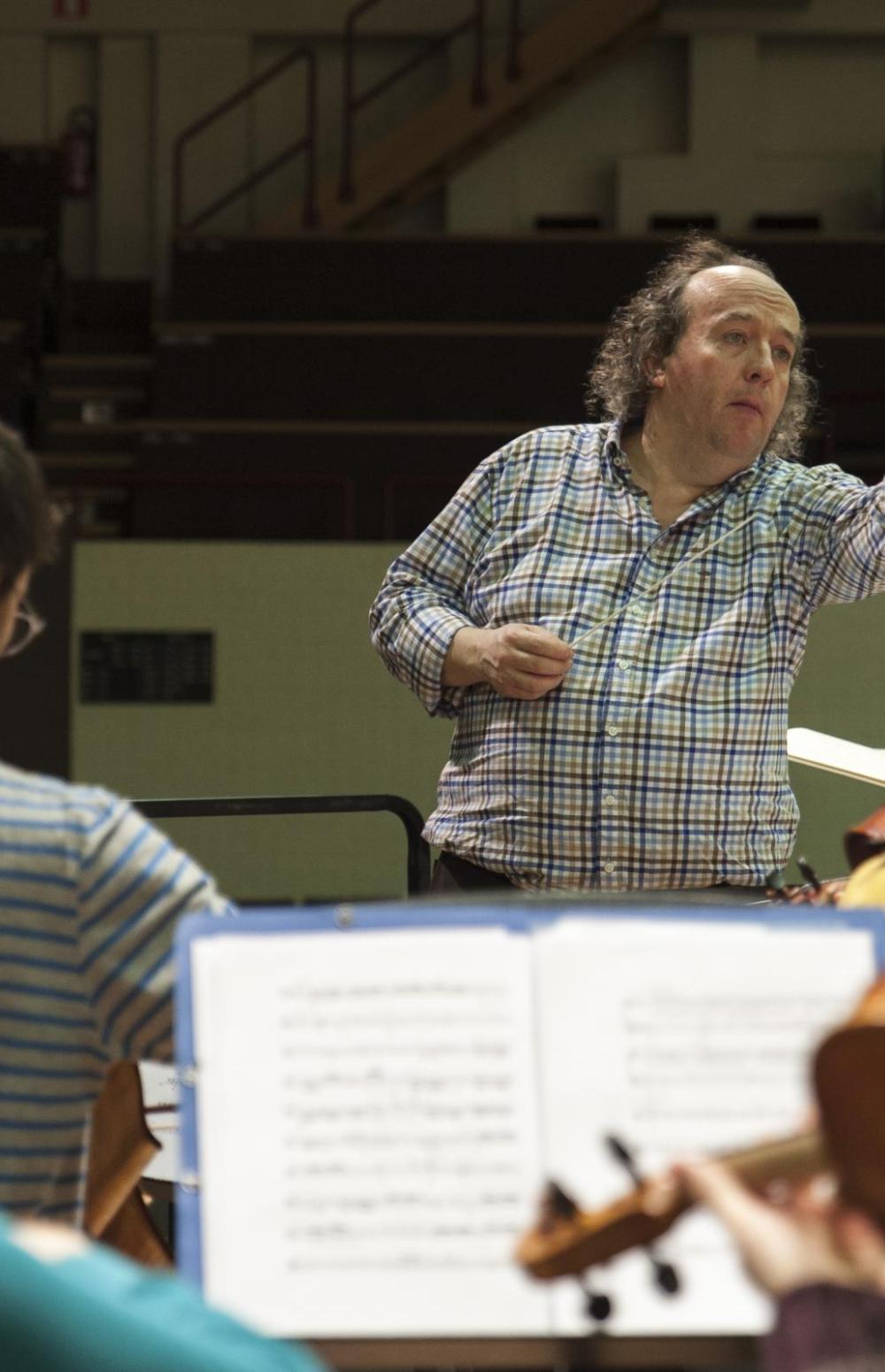
Campus Leuven / Lemmens
Conducting
Conducting
In our master’s programme Conducting you’ll learn how to conduct a choir, wind band or symphonic orchestra. A solid technical basis, a professional insight into performance practice and interpretation form the basis of your program, together with a broad literature overview,. You’ll learn to rehearse efficiently in a pedagogical and methodical way, partly through practice-oriented analyses of works and performances.
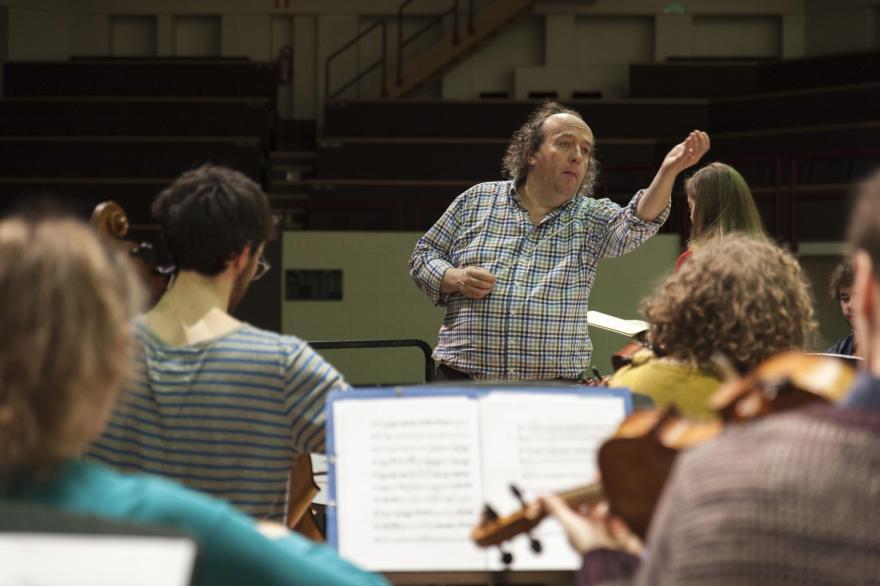
What does the programme look like?
If you are not yet sure of your own profile, our teachers and programme counsellors will help you discover it. Once you have chosen a specific profile, you can still set your own emphases. After all, from year to year, you compose a large part of your individual study programme.
If you want to know more about which subjects you will be taking, take a look at the education offer with study guide for content and credits for bachelor and master.
From the academic year 2022-2023, LUCA School of Arts, Campus Lemmens will offer a new Master's curriculum in Music.
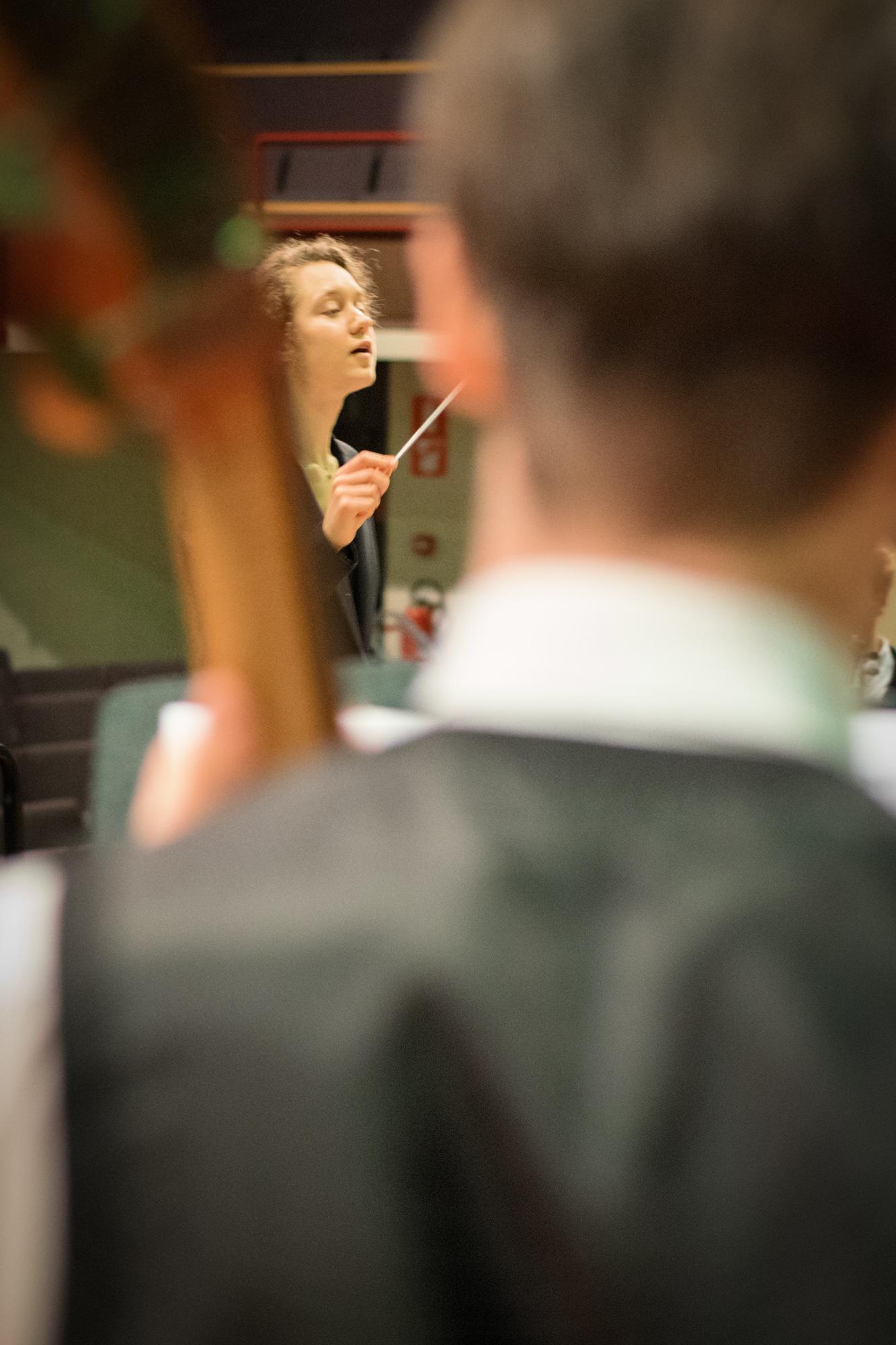
Curriculum
The master's thesis
The master's thesis consists of two self-selected artistic projects: a recital and a research-based recital. You present both recitals to a jury of internal and external experts during a public presentation. You substantiate and contextualise it with a thesis that situates your work within or against existing literature and debates. With this, you prove that you can orient yourself within the field of your artistic discipline. With your master's thesis, you prove that you work largely independently. From your first master's year onwards, you work on your research project with support from your main subject teacher and thesis supervisor.
Inspiration for your master's thesis
|
Masterclasses, symposiums and intense practical experiences Every year, LUCA Music organises interesting master classes and workshops with external experts and renowned national and international musicians. Music practice takes centre stage on our campus. You not only make music during your practical lessons or self-study, but also participate in our ensembles, choirs and orchestras and our prestigious artistic productions. These experiences shape you into a team player. |
Cross-overs LUCA School of Arts is a habitat in which collaboration between students of different arts disciplines is encouraged. This creates interesting crossovers and innovative artistic practices. Students can also take optional subjects from all LUCA programmes, ranging from film or photography to graphic design or interior design to product design or sculpture. |
General Part
All students within the Conducting Programme choose a track from choir conducting, wind orchestra conducting or symphonic orchestra conducting.
New from 2022-2023 is the Professional Toolkit. In this 6-credit course, students are strongly oriented to the future professional practice of a musician. You gain insight into the organisational, financial and social aspects of professional practice. You acquire additional skills that you can apply in future practice. Within this subject, students choose a combination of compulsory and freely selectable components such as Entrepreneurship, Performance psychology, Scenic awareness or an internship at the production office, etc.
Electives
Students can deepen their knowledge within their own specialisation/degree course or broaden their knowledge by taking electives within and other degree courses. Elective courses such as (Practical) Harmony, Introduction to Arts Education are complemented by 7 semester-organised workshops - of 6 credits from which the student can choose. A number of minors (fixed package) are also offered within that elective.
|
Minors For students with an interest in one of the other programmes, a series of minors of 12 credits each is now also offered within the Music Master's elective. For example, a piano student can study composition or a composition student can study conducting, etc.
|
Ateliers Within the Music majors, students can use (at least) 12 credits per master year within the electives. They choose 1 or 2 of the following 7 new ateliers (of 6 credits).
|
|
International Traineeship In the new curriculum, it is also possible to redeem short international experiences in 3, 6, 9 or 12 credits. |
Cross-Campus Electives Students will have the opportunity to take (elective) courses from another programme at one of LUCA School of Arts' campuses. |
A good command of English (level B2) is required to make the most of your stay with us. Campus Lemmens does not own student accommodation. Therefore, you will have to rent a room on the private housing market for the duration of your stay. To help you in your search, please visit the website of the KUL or contact our student support services.
Interested in this course?
All Erasmus+ Exchange Students need to apply via the exchange application procedure of LUCA School of Arts. During your application process, you can indicate the LUCA campus of your choice and the exchange programme you wish to apply for. Notice that not all programmes are open for incoming exchange students in both semesters. An overview can be found here.
- The deadline for the Autumn Semester / full year is April 1
- The deadline for the Spring Semester is October 1
Outcome Exchange Application
The outcome of the application can be expected within 4-6 weeks after the application deadline. Both you and your international coordinator will be informed about the result of your application by e-mail. No need to inquire about the outcome yourself.
To enroll in a master's program you must have an academic bachelor's degree that grants direct access.
Do you have a related Academic Bachelor's degree or a Professional Bachelor's degree? Then in certain cases it is possible to enroll in the master's program after following a bridging or preparatory program. If there is no bridging or preparatory program, you can inquire about the possibility of enrolling as a lateral entrant in the bachelor program.
Enrollment procedure
The application and enrollment procedure at LUCA School of Arts consists in general of three steps.
- First you will have to submit an online Admissions application in which you will be asked to upload certain documents required for the Admissions’ diploma and language check. We will be checking if you meet with the diploma and language requirements.
- The second step continues with your participation in a Master Assessment.
- Step three is the final and binding (online) registration (for which you will receive a unique registration link after succeeding the Master Assessment).
Do you want to start a Master's degree at LUCA?
Then you must pass the MASTER ASSESSMENT
Where do you have class?
Facilities & campus life
- Our very own campus, situated in a parc in one of Europe's oldest university towns
- An artistic meeting space for theater maker and musicians
- A coworking space with rehearsal studio's concert halls and theater venues
- An art centre with concerts, performances and theater shows, lectures and artist talks, book launches, graduation shows and showcases
- An expertise centre for young perfomnce artists with an art library, production support and a lending service
- An intricate network of cultural partners where students rehears and show the results of their projects
Location
Lemmensberg 3
3000 Leuven
info.lemmens@luca-arts.be
+32 2 447 15 00
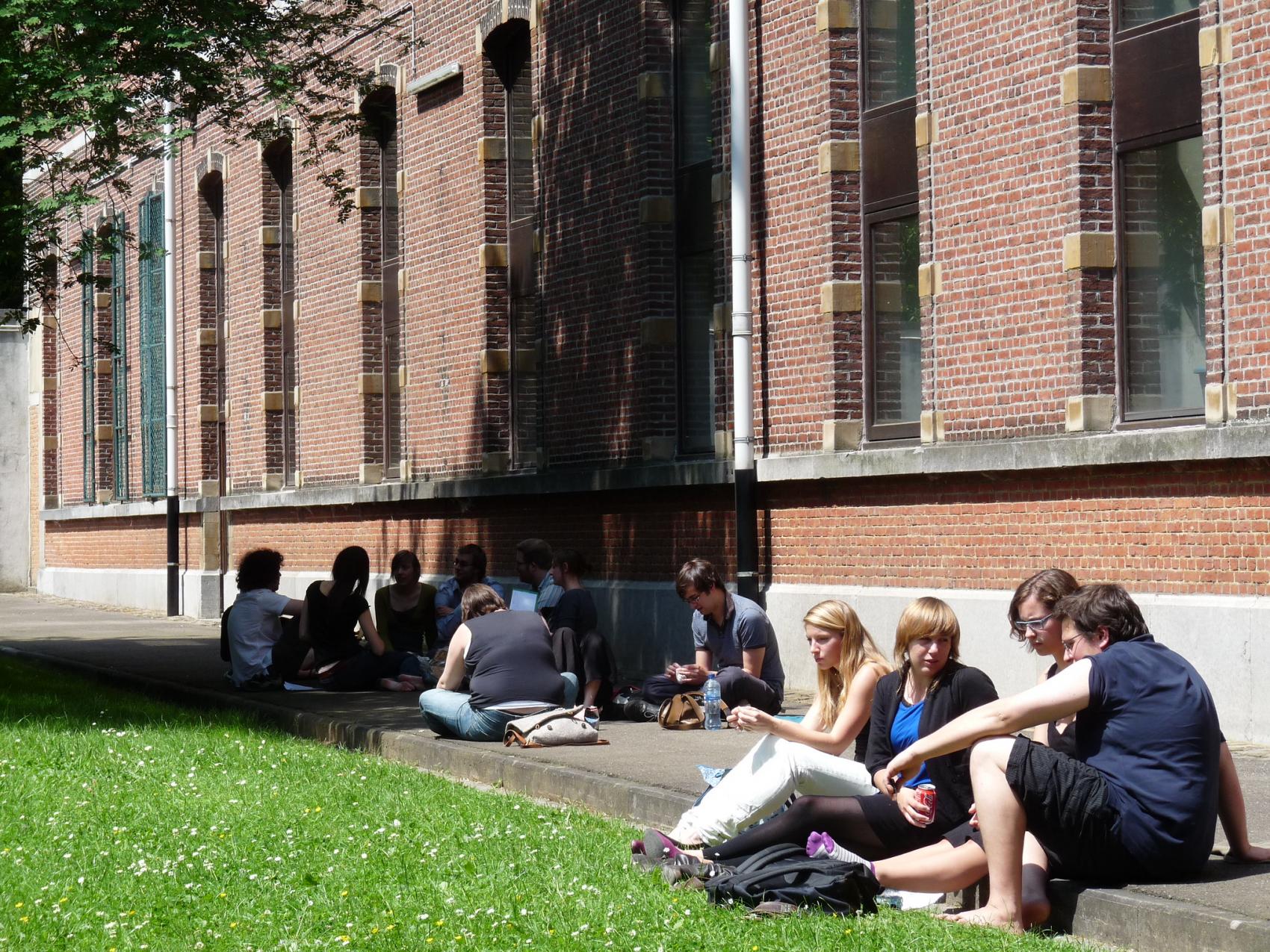
Contact
If you need more information, don't hesitate to contact us:
International Coordinator Campus Lemmens
Diana Solomonidou
diana.solomonidou@luca-arts.be
Campus Lemmens
Lemmensberg 3
3000 Leuven
+32 2 447 15 00
info.lemmens@luca-arts.be
At LUCA we attach great importance to the quality of our courses
If the basic principle of the policy plan means that 'quality is our driving force', and that every aspect of the policy can be tested against this, then LUCA undeniably wants to develop and nurture a strong quality culture: a culture that leaves based on trust in people with talent and expertise, and which is aimed at valuing, inspiring and improving.
The formal quality framework for training within LUCA was named KOPERA, which stands for: Critically Analyzing the Quality of Training with Peers in Own Direction.
For KOPERA, LUCA starts from a vision of quality care that is based on trust and aimed at valuing, inspiring and improving.
During the six-year KOPERA cycle, each training course receives a panel of critical friends who examine the implementation of the quality characteristics and examine how the training contributes to the general LUCA policy.
The final element of KOPERA is the ultimate assurance of training quality. The key question is: "Does the program have a good quality culture that follows the 'plan-do-check-act' circle?"
LUCA publishes a quality sheet for each course. You can find this on the Education Quality page.
“Don't wait, search on your own and find connecting arts yourself and dare to push your own boundaries.” It sounds sobering when you just start at the Lemmens Institute, but you actually get a gift in the form of a necessary portion of life wisdom. Teachers immediately will tell you that from now on, it will be a lot of hard work. You will receive a thorough technical training, but then it is up to you. Dare to say yes, dare to make mistakes, keep your vision open and dare to think outside the box. There are no perfect paths to follow. Follow your own path." Kevin Houben
As a conductor you can work with the many choirs and wind orchestras, both as in the amateur arts sector, as well as in professional ensembles. There is a lot of project-based work. In this context, collaboration with and insight into other art forms are of great importance.
| Choir conducting | Kurt Bikkembergs |
| Orchestra conducting (symphonic and wind) | Ivan Meylemans |
| Instrumentation/Arrangement hafabra | Kevin Houben |
| Instrumentation/Arrangement orchestra | Piet Swerts |

